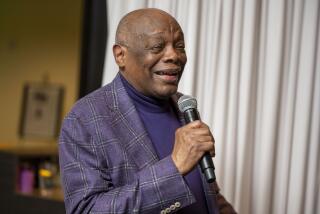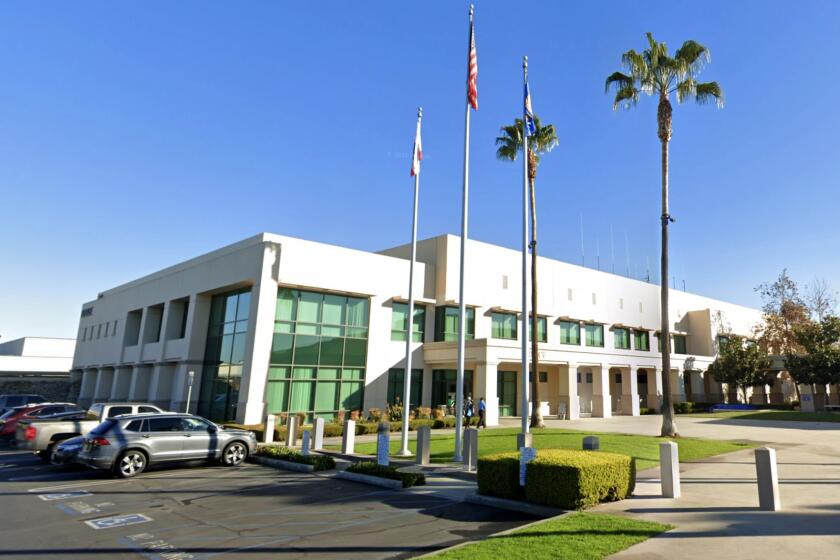Prickly allies for Jerry Brown
The heat has cooled between Gov. Jerry Brown and Democratic leaders of the Legislature. But for a while, there seemed to be a pending explosion.
Brown quickly vetoed the Legislature’s gimmicky state budget — no California governor apparently had ever dared that — and the leaders angrily countered that he was ineffective and confused.
All’s calm again, however, now that the Democrats have produced a more honest spending plan and Brown has signed it, praising them for “a hell of a job.”
But what does the public flare-up between a governor and legislative leaders of his own party say about Brown’s leadership skills? Remember, in running for the office last year, he billed himself as the savvy old pol who could handle these quirky lawmakers.
It doesn’t say much. At least so far.
Fact is, governors and legislators of the same party are supposed to battle. That’s the way the nation’s founders set up the system. It’s as natural as fireworks on the Fourth of July.
“It’s not personal, it’s institutional,” says former Gov. Gray Davis, who was Brown’s chief of staff during the first time Brown was governor in the 1970s.
“There’s a natural tension,” continues Davis, who also once was an assemblyman. “The legislators are appropriators. Their mind-set is to spend money. The governor is more like a goalie in a hockey game. He’s got to slap away all those pucks.”
“They pass a thousand bills,” Brown told me. “A governor can’t sign them all…. But I get along with Pérez and Steinberg.”
Assembly Speaker John Pérez (D-Los Angeles) and Senate leader Darrell Steinberg (D-Sacramento) initially got irked at Brown for promising voters that they’d have the final say over any tax increase. Privately, the leaders thought this politically motivated pledge was nuts. The founders gave the executive and legislative branches the power to tinker with taxes. They didn’t envision public plebiscites.
Also, the leaders have groused about Brown’s silence regarding a “Plan B” if his tax-and-cut proposal failed. When it did collapse, they were left with only a few days to concoct a backup budget before the July 1 start of the fiscal year.
All that said, Brown’s relationship with legislators has markedly improved since his first reign.
Back then, he was seen as the young twerp, the establishment-taunting, overly ambitious celebrity governor capitalizing on the name of his father, former Gov. Pat Brown, and not very respectful of him at that. (His expressions of respect later increased substantially.)
The first Gov. Jerry Brown seemed to have little use for legislators, figuratively turning up his nose at them as sleaze. He engendered their wrath by sponsoring a post-Watergate ballot initiative that literally severed them from their lobbyist meal tickets. No longer could they be wined and dined by lobbyists.
“The [lobbyist] pigeons were limited to providing bird seed,” former Assembly Speaker Willie Brown recalled in his autobiography, “Basic Brown.”
These executive-legislative relationships also can be severely strained by sordid jealousies and conflicting ambitions.
In the last 50 years, no rivalry has been more bitter — more poisonous — than the one between Jerry Brown’s dad and Jesse “Big Daddy” Unruh, arguably California’s most powerful Assembly speaker ever. These two Democrats were relatively close philosophically, but they detested each other personally.
They fought over politics, from the state party to the presidential level.
Gov. Pat Brown had opened the door to Unruh’s speakership by appointing the previous speaker, Ralph Brown, to a prestigious judgeship. And the governor felt, he told me, that Unruh “had been such an ingrate.”
For his part, Unruh believed that Brown had promised him that he’d step aside after his second term and give the speaker a shot at the governorship in 1966.
But 11 years later, as we sipped Wild Turkey during an interview in the owner’s suite of a San Francisco Nob Hill hotel, Brown confided that he had run for a third term against Ronald Reagan largely to block Unruh from becoming governor.
“I felt Unruh had been so unfair to me after I had appointed Ralph Brown to the appellate court so he could be speaker,” Brown said. “He had been so nasty … and I just didn’t want him to be governor at that time.”
Reagan was another governor loathed by legislators of his own party, at least initially. The GOP caucuses then were dominated by moderates, and many had supported Reagan’s rival for the party nomination, former San Francisco Mayor George Christopher.
“They had contempt for the cowboy outsider,” recalls political analyst Tony Quinn, then a speechwriter for Assembly Republican leader Robert Monagan. “They’d been in the trenches doing the work. And here comes this guy riding in from Hollywood.”
“In the beginning it was awful,” remembers lobbyist George Steffes, who was Reagan’s legislative liaison. The governor’s top advisors were “telling him he didn’t need the Legislature. They were a bunch of idiots.”
In 1968, Republicans won narrow control for one term. Reagan learned to work with the ruling moderates. “Then conservatives groused because they claimed Reagan paid no attention to them,” Steffes says.
In his last year, Reagan became the first governor in nearly three decades to suffer a veto override. Six Senate Republicans voted with Democrats to resurrect a mental health bill by liberal Assemblyman John L. Burton. A hard-right Republican cast the decisive vote.
A quarter century later, Senate leader Burton and other Democrats feuded with Gov. Davis over spending.
“I knew the good times were not going to last forever and kept counseling restraint, but the Legislature paid no attention,” asserts Davis, who wound up being recalled by voters.
Davis is correct: It’s institutional. But it also can be personal and sometimes, as he learned, politically pricey.
More to Read
Start your day right
Sign up for Essential California for news, features and recommendations from the L.A. Times and beyond in your inbox six days a week.
You may occasionally receive promotional content from the Los Angeles Times.







